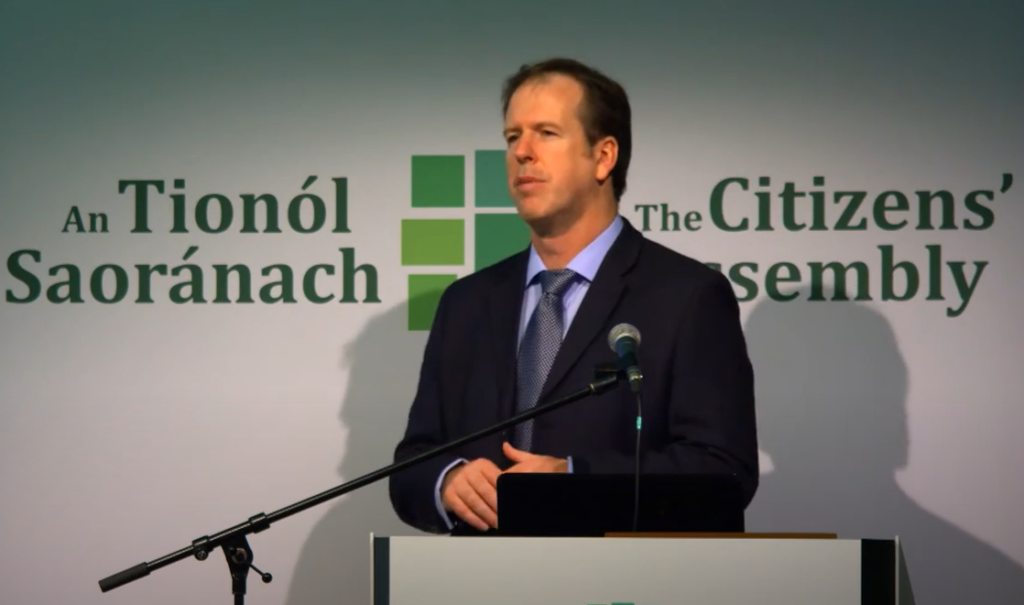The ability to engage with ethical issues and concerns is especially important in today’s world, where division and mistrust between different parts of society are growing and are amplified by social media.

The global pandemic has challenged knowledge and expertise in ways that undermine science and the knowledge that scientists care most deeply about. These challenges manifest themselves at the intersection of science, ethics and public involvement – in questions about governance and ethics, about who decides, about the progress of science and about trust in science.
The ways in which we, as a society, understand and ethically govern biomedical research is fundamental to what scientific research is conducted, how it is perceived and how it is applied for the benefit of patients. Ensuring that biomedical research brings tangible benefits to society requires that we conduct research ethically – including consideration of the diverse and possibly conflicting concerns of all those in society who are affected.
Oxford BRC Ethics Group
The work of Oxford BRC researchers is underpinned by an Oxford BRC Ethics Group, which has developed a significant national and international academic and policy profile. The Ethics Group provides an expert context in which researchers can engage with the most pressing ethical issues. It has two main areas of work:
Service for research
The group provides advice to researchers and conducts research that is directly relevant to and facilitates BRC medical research. Our support ranges from simple advice – for example on how to approach the ethics committee – to helping to develop more complex strategies. Our aim is to engage at an early stage with BRC researchers, so that ethics is fully embedded in their projects and that its clinical translation goals can be achieved.
Systems and governance
The BRC Ethics Group works with policy makers like the Health Research Authority (HRA) and the National Institute for Health and Care Excellence (NICE), with patients and the public, as well as with researchers to ensure that ethics is embedded in the biomedical research process and that that research is seen to be conducted and administered in an ethical way for the benefit of patients.
This means we need to consider the diverse and potentially conflicting concerns of all those in society who are affected by research. The BRC Ethics Group therefore focuses on four interrelated ethical threads:
- Diversity and inclusion in research and PPI: Too often, those who volunteer to participate in research trials or get involved in patient and public involvement (PPI) activities can look quite homogenous. Socio-economic and cultural factors may mean that some groups in society do not have equal access to research, choose not to be involved or are overlooked. We try to recognise and articulate these factors and then develop mitigation strategies that can resolve them, such as new, ethically sophisticated approaches to PPI and outreach.
- Facilitating sharing and access to data and research: The pandemic demonstrated the importance of sharing and access to data. While there has been some progress on this front through the initiatives like Health Data Research UK (HDR UK) and a range of federated data networks, there remain clear ethical, social and regulatory roadblocks to sharing and access to data for use in research. The Ethics Group conducts research, in collaboration with researchers, regulators, patients and the public, to understand the range of ethical solutions.
- Proportionate governance for medical research: Following the early stages of the COVID-19 crisis, when the ethical and regulatory structures in the UK moved quickly to approve a vast range of research proposals, the HRA established the Ethics Review Advisory Group – of which Oxford BRC ethics lead Mark Sheehan is a member – to implement significant changes to the ethics review processes. These include: a streamlined ethics application system; modifications to the processes of proportionate and fast-track review; and updating and modernising the practices and processes of consent. Members of the Ethics Group work closely with the HRA and the Ethics Review Advisory Group to examine the ways in which ethics governance can be adapted to specific contexts and can build efficient learning into the review process.
- Trustworthy governance and research: Distrust of scientific expertise has become a worrying trend in contemporary society. Research on the nature of trustworthiness as it applies to research institutions and the mechanisms of governance that surround them is an important step to solving this problem. The involvement of patients and the public as well as researchers and institutions will be vital in finding solutions and implementing them.
Contacting the Ethics Hub

Senior Research Fellow in Imaging and Data Ethics, Ethox Centre, Oxford Population Health
Examples of our work
Research Ethics Committees Consistency
Research Ethics Committees (RECs) decide whether or not proposed medical research should be allowed to proceed. There are many such committees across England and beyond, but they often make their judgements in different ways and apparently according to different sets of standards. This inconsistency makes life difficult for researchers, who are unsure how their research will be assessed. Our research paper suggests that some aspects of the evaluation process should be consistent across ethics committees, while it is reasonable for different judgements to be made for others. This paper has been adopted as Health Research Authority guidance.
Trust and data sharing in the NHS
We need to be able to trust the NHS and the researchers who work in it, using our data. But understanding what trust means, and what it means for someone to be worthy of our trust, can be tricky. We held a workshop with 10 members of the public to unpack some of these questions.
The resulting paper is jointly authored by eight of these members of the public and two academic bioethicists and emerges from a novel approach to conceptual analysis undertaken jointly by these participants. Mark Sheehan has written in the Journal of Medical Ethics about this approach, and one of the participants wrote a blog about the workshop and the paper.
Irish Citizens Assembly
The Citizens’ Assembly is a group of 100 Irish citizens who were gathered together first in 2016 to consider a range of political questions that are important for Irish society. Mark Sheehan was invited to speak to the Assembly about the nature of ethics as a part of its consideration of whether there should be a referendum in Ireland about the legalisation of abortion. Mark’s talk was followed by question-and-answer session.

